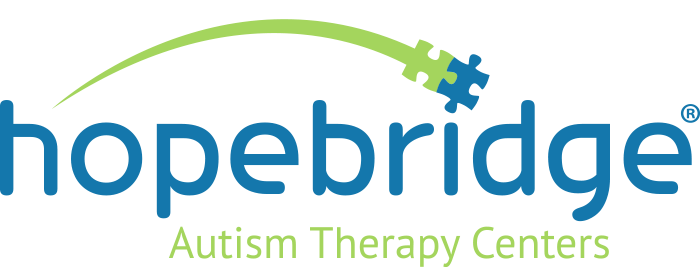- Home
- 2023 Conference Agenda
2023 Annual conference - Agenda
*This schedule is subject to change. Friday, october 138:00 am - 9:00 am 9:00 am - 12:00 pm In 2010, the World Health Organization’s Framework for Action on Interprofessional Education and Collaborative Practice stressed the importance of interprofessional education (IPE) for the development of collaborative practice ready-health work force (WHO, 2010). Workshop Sponsored by:
12:00 - 1:00 pm Sponsored by:
1:00 - 4:00 pm Learning Objectives:
4:00 - 5:00 pm Sponsored by:
|
saturday, October 14
8:00 am - 8:30 am
Breakfast and Registration
8:30 - 8:45 am
Presidential Address
8:45 - 10:15 am
Keynote Session: The Effects of Trauma and Resiliency of Black American Women: Creating Safe Spaces for Supervisees
Presented by danyelle goitia beal, PsyD, BCBA
This study explored the effects of trauma and resiliency among 10 Black women across the United States. Participants’ ages ranged from 27 to 82, and all had experience living in foster homes in their childhood. The goals of this research were to: (a) explore participants’ experiences with childhood trauma; (b) identify particular resilience factors as described by each participant; and (c) offer insight for identifying particular factors for resilience and coping strategies among Black American women.
A transcendental phenomenological research design was used. This type of study allowed for a phenomenon to be researched through the participants’ lived experiences, those data were then examined and interpreted through the lens of resilience theory (Garmezy, 1991).
The findings suggest that participants were able to survive their childhood experiences because they had access to community resources, such as community pools, public libraries and people who invested in them. In an effort to move past their childhood trauma, these participants accessed higher education and, in those systems, endured more injury. Black women must be protected in these environments. Studies show that Black women often carry the responsibility of protecting themselves (Masten, 2014). Further exploration demonstrates that when Black women who have suffered trauma operate in environments that don’t share that responsibility, there is a potential for further harm. The misnomer “strong Black woman”, or the superwoman archetype (Woods-Giscombé, 2010), can prove to be harmful for her healing journey. The goal of this research is to teach practitioners to use culturally responsive tools to support Black women supervisees and the families they serve.
Session sponsored by:

10:15 - 10:30 am
Break
Break sponsored by:

10:30 - 11:30 am
Concurrent Sessions
Advancements in Efforts to Define and Scale Compassionate Care in ABA
Presented by Carey Beranek, BCBA and Ehren Werntz, Ph.D., BCBA-D, LBA
Compassion has been an area of research in healthcare going back to the 1970’s (e.g. Lanara, 1976), and it is well established that compassionate care has important implications related patient satisfaction and outcomes. In recent years “compassion” and “compassionate care” have become subjects of increasing interest in ABA. This conversation is important, overdue, and a great deal of work remains to define and scale compassion within our field. In this presentation, AZA United’s Clinical Vice Presidents, Dr. Ehren Werntz and Carey Beranek will introduce a functional, measurable definition of compassion for application within multiple levels of ABA, as well as a comprehensive curriculum designed to ensure competency in the area of compassionate care as a skillset for clinicians and treatment consistent with today’s best practices.
Foundations of Care: An Organizational Approach to Ensuring Compassionate Service Delivery
Presented by Brittany Bauerle, BCBA, Cynthia Kennedy, BCBA, Hillary Laney, BCBA, and Liisa Podosek, BCBA
The field of Applied Behavior Analysis is facing tumultuous discussion regarding ethics, quality, and organizational status (Silbaugh & El Fattal, 2021). Clinical quality at large ABA agencies requires alignment unilaterally from the executive team through the individual provider to be effective. Identifying and adopting a model that aligns with evidence based practice, safety, compassion, dignity and respect may provide a guiding compass for organizations looking to improve the quality of their services and achieve meaningful outcomes. This symposium includes three presentations that will outline how a nationwide organization has integrated the values of the Practical Functional Assessment (PFA) and Skill Based Treatment (SBT) to develop a Response to Intervention model, called Foundations to Care, that starts with an entry level behavior intervention plan for all clients, then utilizes the PFA and SBT as components for the assessment and treatment of interfering behavior. The first presentation provides an outline of the major components of the entry level behavior plan, the Foundational Plan and data from its adoption across initial training and implementation efforts. The second presentation will describe the adoption of the PFA as a functional analysis to inform treatment and organization-wide data supporting its effective and efficient use. This presentation will also highlight the impact of Skill Based Treatment across interfering behaviors and skill acquisition domains. The third presentation will provide an overview of the mentorship model used to train clinicians in all components of the Foundations of Care and its effect on clinical practice. Additionally, comments on large-scale adoption of evidence-based, values driven care which leads to socially valid changes in the lives of clients and their families will be shared.
RBT Track: Building Compassionate Relationships- Modern Approaches to Pairing H.R.E, and Assent/ Assent Withdrawal
Presented by Kiana Hernandez, RBT and Bella Holmen, RBT
This presentation will discuss building compassionate relationships with clients and technicians through modern approaches to pairing, establishing H.R.E before implementation, and acknowledging assent and assent withdrawal.
11:30 am - 1:00 pm
Lunch
Sponsored by:

1:00 - 2:00 pm
Concurrent Sessions
Clinical Decision Support Systems: Technology as a Solution to the Crisis of Mentorship, Balanced Caseloads, and Outcomes – The Path to Value Based Reimbursement
Presented by Amanda “Mandy” Ralston M.Ed., BCBA, LBA, IBA
Clinical decision support systems are quickly becoming essential tools for healthcare providers as the volume of available data increases alongside their responsibility to deliver value-based care. They have long been established parts of care in the medical community, as well as Physical and Occupational therapies. Reducing clinical variation and duplicative treatment, ensuring client and staff safety, and avoiding complications that may result in expensive clawbacks are top priorities for providers in the modern regulatory and reimbursement environment – and harnessing the hidden insights of big data is essential for achieving these goals. The amount of information BCBAs need to understand is getting so untenable that it’s unreasonable to expect the average clinician to integrate all of it into their decision-making effectively and reliably. Best practices are ever-evolving to keep-pace with rapidly developing understanding of autism and neurodiversity. Clinical decision support (CDS) tools are designed to help sift through enormous amounts of data to suggest next steps for treatments, alert providers to available information they may not have seen, or catch potential problems, such as behaviors or co-existing conditions that clinicians have no experience with.
RBT Track: RBT, You Can Count On Me. Delivering Person-Centered Care in ABA
Presented by Cara Brown, BCBA and Yvette Sierra, BCBA
This training will focus on how we as direct service providers can use our own personal values to guide person-centered care. We will do this by first identifying our own values/motivating operations, then defining person-centered care in the field of applied behavior analysis, and finally how identifying these can support delivery of services.
2:00 - 2:15 pm
Break
2:15 - 3:45 pm
Keynote Session: Leadership as a Value: Embracing Radical Acceptance, Self-Reflection and Shared Valuing for Meaningful Action Toward Human Dignity
Presented by Nasiah Cirincione-Ulezi, Ed.D., BCBA, LBA
As we move towards a more informed understanding of leadership as being beyond a title, position or credential, we have an opportunity to embrace leadership as a value – a way of being that we all have access to at any given time from any given place. When we organize our leadership behaviors around leadership as a value, we set a powerful occasion to identify the covert and overt behaviors we engage in that may serve to move us towards, or away, from what matters to us as leaders and those we serve. Great leaders are not the people with all the answers to our problems. Great leaders have taken time to identify their values, have insight into their own patterns of thinking and behaving, and embrace the reality of any given situation as an opportunity to stay connected with and take action toward and in alignment with their values. The purpose of this talk is to explore and discuss how the practices of radical acceptance, self-reflection, and shared valuing can serve to support ABA leaders in taking meaningful and positive action towards what matters most to them and those they serve.
3:45 - 4:00 pm
Break
4:00 - 5:00 pm
Nurturing Values: Empowering Assent-Based Parent Support
Panelists: danyelle goitia beal, PsyD, BCBA, Mari Cerda, Ph.D., TR-BA, BCBA, LBA and Nasiah Cirincione-Ulezi, Ed.D., BCBA, LBA
In this panel discussion, participants and panelists will explore assent-based practice & parent empowerment in ABA therapy. Learners will examine the concept of assent-based care, emphasizing its implications and the importance of understanding the family system's context. The participants will discover how assent-based approaches enhance therapeutic relationships among parents, children, and clinicians. Learners will leave with insight into involving parents effectively, aligning their goals and values with therapy outcomes and learn strategies to empower parents in driving their child's ABA therapy. This panel encourages critical thinking and practical solutions for ABA practitioners seeking to implement a more assent-driven and family-centered approach in their practice.
Session sponsored by:
![]()



.jpg)


